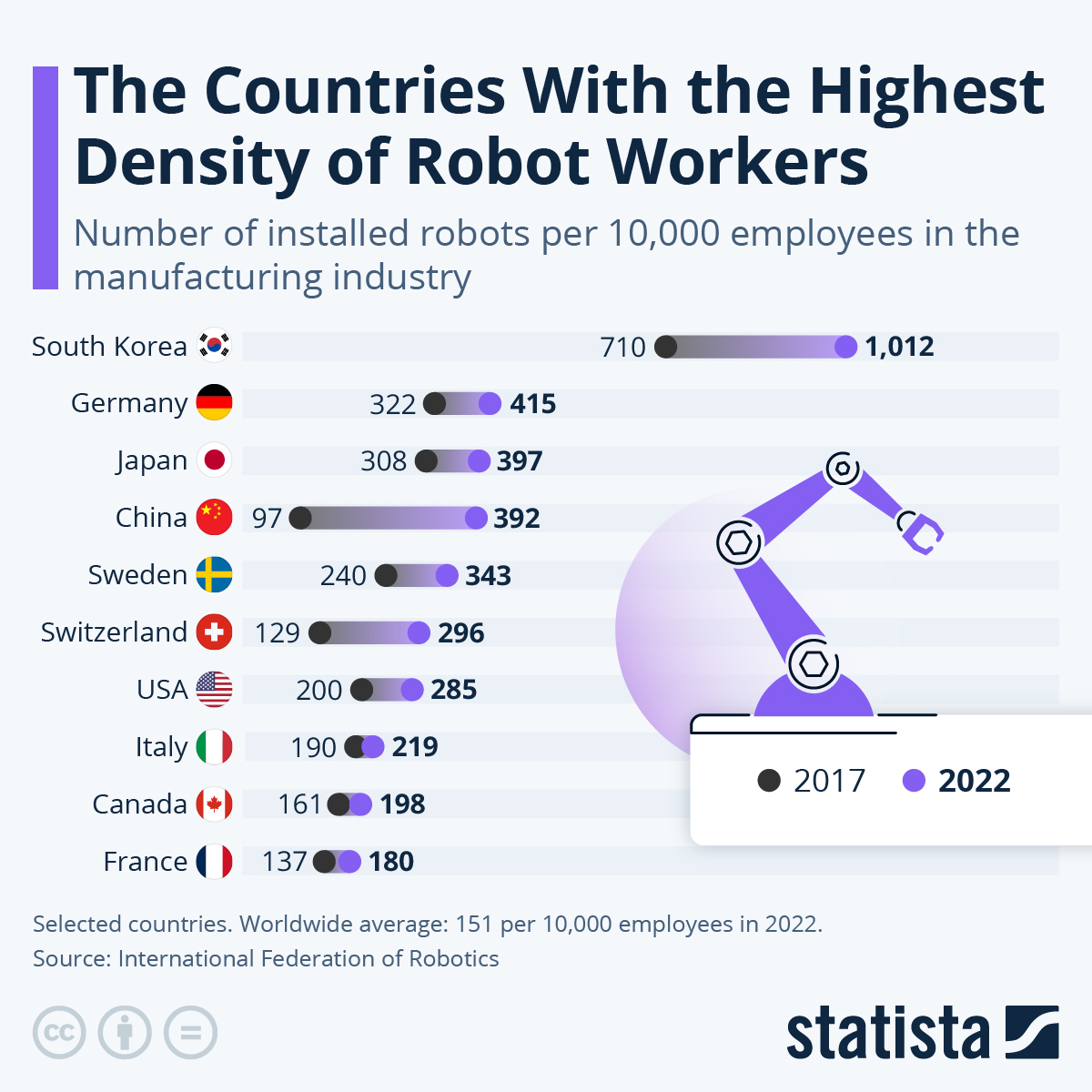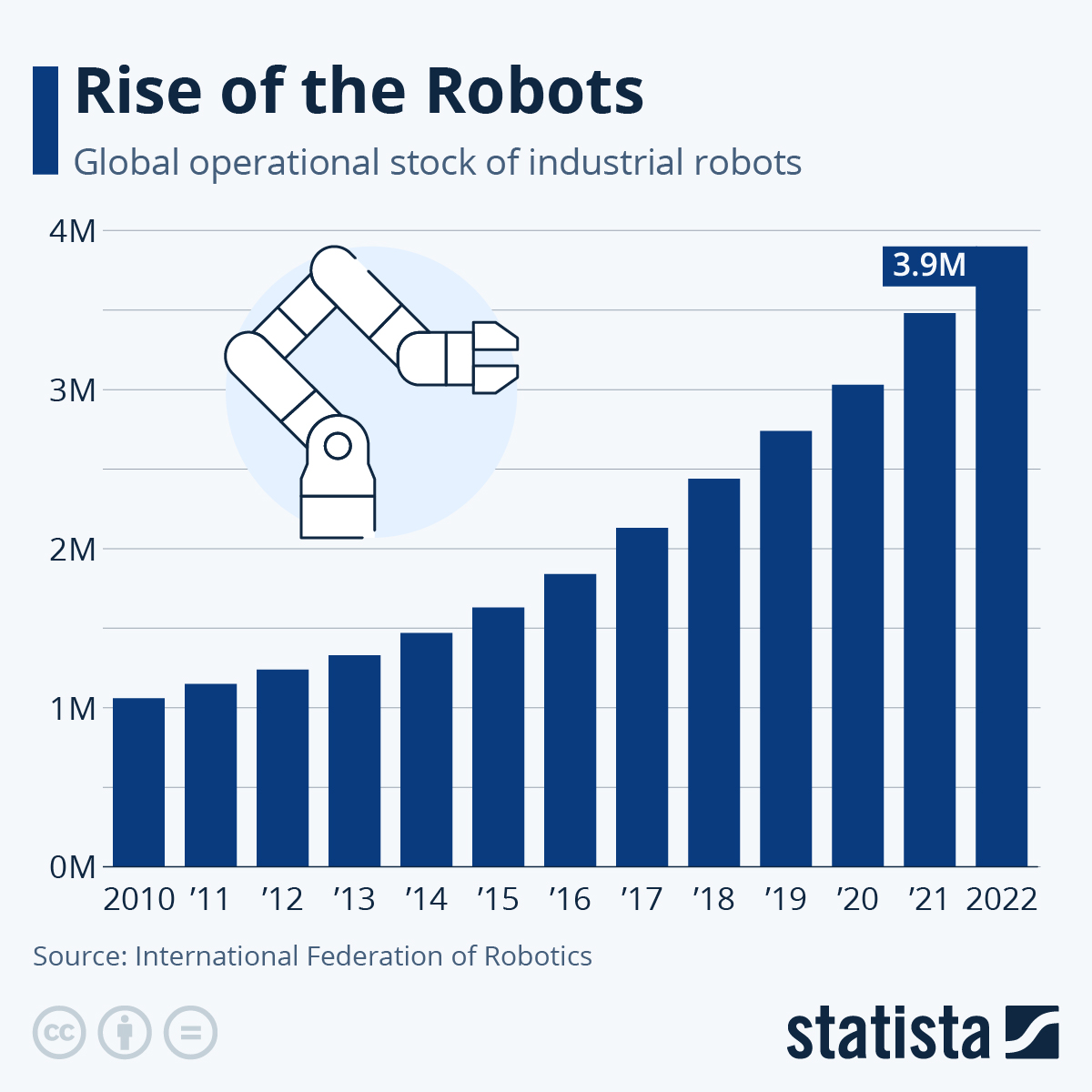Versus robots.
 |
| "No! Demo-GRAPH-y!" |
The flood of low cost Chinese labour will ebb, according to Goodhart and Pradhan in "The Great Demographic Reversal", leading to:
- higher inflation.
- manufacturing elsewhere becoming more competitive. (un-paywalled from Nikkei Shimbun)
Apparently good news for those in developed nations who have long clamoured for fair prices and fair wages, and who blame globalisation for undercutting them.
But when? And for how long?
Well, not right now. China labour costs are stagnant, not rising.
source: tradingeconomics.com
Even as China's working age population loses 5 million a year, assuming the baseline scenario. (Source: Reserve Bank of Australia.)

One may scoff at the suggestion that these lost workers could be - or are being - replaced with robots or other automation, such as AI.
Robots have been around for decades but opinion on how they impact workers vary, from 'a little' to 'responsible for 50-70% of inequality' (FT paywalled). At least, in the US.
Asian countries in particular have been more gung-ho about automating, with the US lagging Japan, South Korea, and China in pace if not density.
If robots are having little effect on overall wages, it may be because their relative numbers are currently small. China's 2019 robot fleet stood at around 783,000.
They are, however, growing fast globally. Slightly more than doubling every seven years. (China is automating faster than the global average.)
Each robot being capable of the output of 1.3 - 1.6 humans is but one of the many incentives for automation.
For China then, productive capacity can be illustrated very roughly by the sum of:
- linear decline in humans, and
- exponential growth in robots.
In particular:
- yhumans = 900 - 5x
- yrobots = 1.3 × 0.783 × 2 (x/7)
Where y = million human output, x = year relative to 2020.
From the chart, Chinese productive capacity - human and automated - will bottom just before 2050.
So workers globally have a 25-year window to capitalise on a shrinking Chinese workforce. Consumers will have that same time to fear crimped supply.
That window and its potential gains are tenuous. It would be wiped out by China raising its retirement age, forcing millions to remain at work. Notably, capacity loss in that scenario would max out around 11%.
Welcoming projections of labour's renaissance, however temporary, is understandable. Better wages and conditions arising from labour shortages benefit the millions who work.
However, they profit none who do not. Wage rises are meaningless to those without a wage. That is not just slackers, but includes dependents like stay-at-home spouses and those receiving fixed incomes like pensioners. Furthermore, inflation resulting from passing on the cost of these improvements disadvantage all consumers, employed or otherwise.
As a non-worker I have a natural bias against employment. I would prefer my consumption remain cheap and capital return more, than for someone else to get a raise. I would rather a shopper's heaven than a worker's paradise.
Chinese Demography may jeopardise my wish, but only for a quarter century.


Comments
Post a Comment